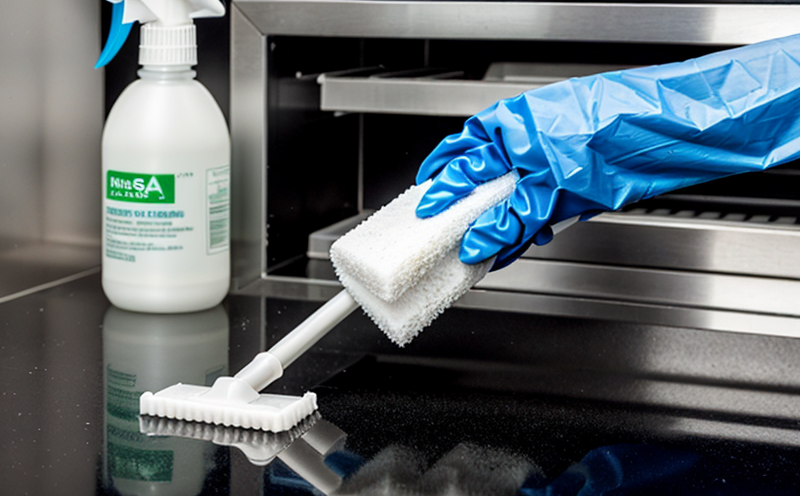ISO 11930 Microbial Preservation Testing of Plastic Hygiene Products
The ISO 11930 standard is a critical requirement for manufacturers of plastic hygiene products, ensuring the effective microbial preservation of these items. This service provides comprehensive testing to validate that plastic hygiene products meet the stringent standards set forth by ISO 11930.
The primary focus of this service lies in evaluating how effectively plastic materials can inhibit microbial growth and maintain product sterility over extended periods. The standard applies particularly to disposable personal care items such as diapers, sanitary pads, tampons, and other hygiene products that come into direct or indirect contact with skin.
Testing under ISO 11930 involves multiple stages, each designed to assess different aspects of the product's microbial preservation capabilities. This includes inoculating the plastic sample with specific microorganisms (such as Escherichia coli, Pseudomonas aeruginosa, and Candida albicans) and then assessing the ability of the plastic to prevent their growth over time.
The process is not just about preventing microbial contamination but also ensuring that the preservation effectiveness does not compromise the functionality or integrity of the plastic material. This service ensures that products remain stable, safe for use, and effective in maintaining hygiene standards even after prolonged storage.
Our testing approach follows a structured methodology to ensure accuracy and reliability. The following steps are typically involved:
- Inoculation of the sample with defined microorganisms
- Cultivation under controlled conditions to allow microbial growth
- Application of preservation treatments (if any) as per manufacturer's instructions
- Re-inoculation and re-cultivation after storage periods
- Evaluation of microbial counts using microbiological methods
The testing environment is meticulously controlled to simulate real-world conditions, including temperature, humidity, and other variables that could affect the product's performance. This ensures that the results are indicative of how the product will behave in actual use.
| Step | Description |
|---|---|
| Inoculation | The sample is inoculated with specific microorganisms that are relevant to the hygiene product category. |
| Cultivation and Assessment | Microbial growth is monitored over time, and the effectiveness of preservation treatments is evaluated. |
| Storage Periods | The sample is stored under controlled conditions for extended periods to simulate real-world scenarios. |
| Evaluation | The microbial count is determined after storage to assess the preservation efficacy. |
This service also includes detailed reports that provide a comprehensive analysis of the testing process and results. These reports are invaluable for quality managers, compliance officers, R&D engineers, and procurement teams looking to ensure that their products meet international standards.
By adhering to ISO 11930, manufacturers can demonstrate their commitment to producing safe and effective hygiene products that meet consumer expectations and regulatory requirements.
Scope and Methodology
| Parameter | Description |
|---|---|
| Microorganisms | The standard specifies a set of microorganisms to be used for testing, including Escherichia coli, Pseudomonas aeruginosa, and Candida albicans. |
| Storage Conditions | Products are tested under various environmental conditions that mimic real-world storage scenarios. |
| Treatment Methods | The effectiveness of any preservation treatments applied by the manufacturer is evaluated. |
| Step | Description |
|---|---|
| Inoculation | The sample is inoculated with the specified microorganisms. |
| Cultivation and Observation | Microbial growth is observed over time, and any changes in the product's condition are noted. |
| Re-inoculation | The sample is re-inoculated after storage to ensure consistent results. |
| Evaluation | The microbial count is determined using standardized microbiological methods. |
The testing process is designed to be rigorous and comprehensive, ensuring that the plastic hygiene products meet the highest standards of safety and effectiveness. Our team of experts uses state-of-the-art equipment and follows internationally recognized protocols to deliver accurate and reliable results.
Eurolab Advantages
At Eurolab, we pride ourselves on providing unparalleled testing services for plastic hygiene products. Here are some of the key advantages that our clients can expect:
- Comprehensive Testing Capabilities: We offer a full range of testing options to meet all your needs.
- Expertise and Experience: Our team consists of highly skilled professionals with extensive experience in the field of polymer and plastics testing.
- State-of-the-Art Facilities: Equipped with advanced instrumentation, we ensure that our tests are conducted under optimal conditions.
- Compliance Assurance: We help you comply with international standards such as ISO 11930.
- Detailed Reporting: Our comprehensive reports provide in-depth analysis and recommendations for improvement where necessary.
- Fast Turnaround Times: We understand the importance of timely results, ensuring quick delivery without compromising on quality.
- Custom Solutions: Tailored testing solutions to meet your specific requirements and challenges.
With Eurolab, you can trust that your products are being tested by experts who understand the unique demands of the plastic hygiene industry. Our commitment to excellence ensures that you receive accurate results and actionable insights to drive product development and quality assurance.
Use Cases and Application Examples
The ISO 11930 standard is widely applicable in various sectors, particularly those dealing with plastic hygiene products. Here are some real-world examples of how this service can be utilized:
- Disposable Diapers: Ensuring that the plastic layers prevent microbial growth and maintain product sterility.
- Sanitary Pads and Tampons: Verifying the preservation effectiveness to ensure safe and hygienic use over extended storage periods.
- Medical Gloves: Assessing the ability of the plastic to inhibit microbial contamination while ensuring proper fit and comfort.
| Product Type | Description |
|---|---|
| Disposable Diapers | Evaluation of the plastic layers' effectiveness in preventing microbial growth and maintaining sterility. |
| Sanitary Pads and Tampons | Assessment of preservation effectiveness to ensure safe use over extended storage periods. |
| Medical Gloves | Determining the plastic's ability to inhibit microbial contamination while ensuring proper fit and comfort. |
In addition to these, the service can also be applied to other personal care products that require microbial preservation. The testing process ensures that these products remain safe, effective, and hygienic throughout their shelf life.





